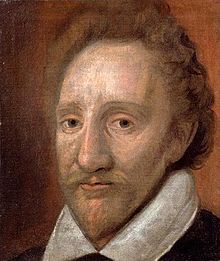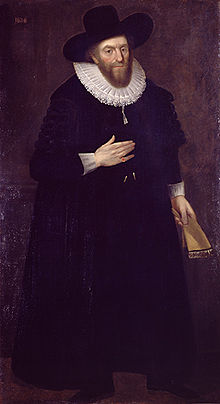 Theatre and acting companies size varied, it all depended on how much work they were making as well as how wealthy they were. A wealthy, well off theatre company had about 8-12 older men, the sharers, 3-4 younger boys as well as the different people who would work as stage hands as well as musicians. All actors were male, and all males would play female roles - though, usually they were played by the younger ones who were yet to hit puberty. An actors wage depended on where they were performing; an actor would earn more in cities like London than they would the countryside. The older shares of the companies would earn more than the other members, Shakespeare was a Lord Chamberlain's Men sharer, so he would also share the cost and the profits made. Companies would have very little time to rehearse - usually in the morning before that afternoon's performance, as well as learning multiple roles at one time. Due to this, actors were only given their lines and sometimes their cues, this meant that a large majority of the scenes were improvised from little rehearsed guideline and the actors knowing their lines well. Actors, especially Shakespearean, were expected to know how to fight with a sword efficiently as well as sing, dance and learn a large amount of lines at one time. When a younger boy joined the company, usually a production boy, they'd be taught by one of the senior sharers so they would be prepared.
Theatre and acting companies size varied, it all depended on how much work they were making as well as how wealthy they were. A wealthy, well off theatre company had about 8-12 older men, the sharers, 3-4 younger boys as well as the different people who would work as stage hands as well as musicians. All actors were male, and all males would play female roles - though, usually they were played by the younger ones who were yet to hit puberty. An actors wage depended on where they were performing; an actor would earn more in cities like London than they would the countryside. The older shares of the companies would earn more than the other members, Shakespeare was a Lord Chamberlain's Men sharer, so he would also share the cost and the profits made. Companies would have very little time to rehearse - usually in the morning before that afternoon's performance, as well as learning multiple roles at one time. Due to this, actors were only given their lines and sometimes their cues, this meant that a large majority of the scenes were improvised from little rehearsed guideline and the actors knowing their lines well. Actors, especially Shakespearean, were expected to know how to fight with a sword efficiently as well as sing, dance and learn a large amount of lines at one time. When a younger boy joined the company, usually a production boy, they'd be taught by one of the senior sharers so they would be prepared. There were multiple well known actors during Shakespeare's time, one of the most notable would be Richard Burbage (1567-1619). Burbage was an extremely notable member of Shakespeare's Lord Chamberlain's Men. He was the originator of multiple Shakespeare title roles, including; Hamlet, Othello, Richard III and King Lear. As well as acting in Shakespeare's plays, Burbage was in extremely popular demand and would work with Shakespeare's contemporaries like, Ben Jonson, John Martson and John Webster. Actor William Kempe (died 1603), specialised in comedic roles - most notably he is often associated with Shakespeare's character Falstaff, but it's unknown whether he genuinely played him in the original productions. He departed the Lord Chamberlain's Men in early 1599 - it's believed he left after some sort of disagreement within the acting troupe. Edward Alleyn (1566-1626) was another Elizabethan actor, it is thought that he had an acting rivalry with Richard Burbage as they were both extremely popular actors at the time. He performed as many of the major roles, including the title characters, in multiple of Christopher Marlowe's plays; Faustus, The Jew Of Malta and Tamburlaine.
There were multiple well known actors during Shakespeare's time, one of the most notable would be Richard Burbage (1567-1619). Burbage was an extremely notable member of Shakespeare's Lord Chamberlain's Men. He was the originator of multiple Shakespeare title roles, including; Hamlet, Othello, Richard III and King Lear. As well as acting in Shakespeare's plays, Burbage was in extremely popular demand and would work with Shakespeare's contemporaries like, Ben Jonson, John Martson and John Webster. Actor William Kempe (died 1603), specialised in comedic roles - most notably he is often associated with Shakespeare's character Falstaff, but it's unknown whether he genuinely played him in the original productions. He departed the Lord Chamberlain's Men in early 1599 - it's believed he left after some sort of disagreement within the acting troupe. Edward Alleyn (1566-1626) was another Elizabethan actor, it is thought that he had an acting rivalry with Richard Burbage as they were both extremely popular actors at the time. He performed as many of the major roles, including the title characters, in multiple of Christopher Marlowe's plays; Faustus, The Jew Of Malta and Tamburlaine.
The Theatre was an Elizabethan theatre in Shoreditch - in the modern borough of Hackney. Just outside the City of London, The Theatre was the second permanent theatre ever built in England. It was built by James Burbage, father of the famous Richard Burbage, and is thought to be the first theatre in London built for the tole purpose of theatrical productions. Shakespeare and the Lord Chamberlain's Men performed at The Theatre until 1597 - when they were forced to move to The Curtain. It's thought that many of Shakespeare's earliest plays originated here. After a dispute with the landowner, The Theatre was dismantled and the wooden material was ferried over to become part of the future theatre, The Globe. The Curtain was then built 200 years south of The Theatre, named The Curtain due to the close proximity of the city walls. From 1597-1599, Shakespeare and The Lord Chamberlain's Men performed in The Curtain after The Theatre closed. It was the premier venue for multiple of Shakespeare's shows including Romeo and Juliet and Henry V. The Curtain, amongst all of the other London theatres, was closed between 1592-1594 due to the outbreak of the bubonic plague. The Rose Theatre was the fourth public theatre to be built after The Theatre, The Curtain and Newington Butts. Edward Alleyn's theatre troupe, the Admiral's Men, began a partnership with one of The Rose's co-builders Philip Henslowe, and it became the home of the Admiral's Men for multiple years in which Henslowe became a merge of a manager and financier. The Jew Of Malta's first recorded performance was in 1592 at The Rose with Edward Alleyn playing the leading character.
No comments:
Post a Comment